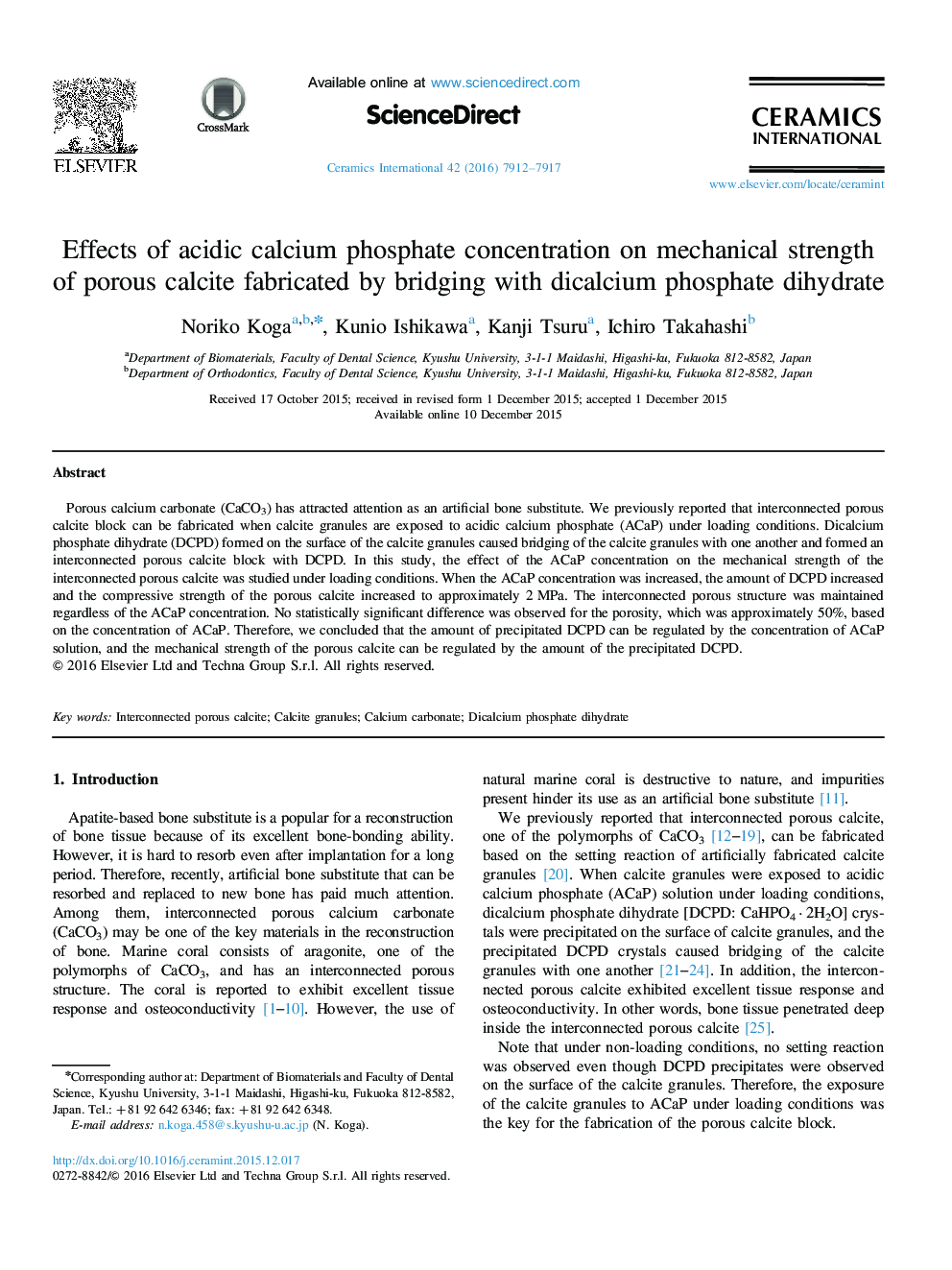| Article ID | Journal | Published Year | Pages | File Type |
|---|---|---|---|---|
| 10624113 | Ceramics International | 2016 | 6 Pages |
Abstract
Porous calcium carbonate (CaCO3) has attracted attention as an artificial bone substitute. We previously reported that interconnected porous calcite block can be fabricated when calcite granules are exposed to acidic calcium phosphate (ACaP) under loading conditions. Dicalcium phosphate dihydrate (DCPD) formed on the surface of the calcite granules caused bridging of the calcite granules with one another and formed an interconnected porous calcite block with DCPD. In this study, the effect of the ACaP concentration on the mechanical strength of the interconnected porous calcite was studied under loading conditions. When the ACaP concentration was increased, the amount of DCPD increased and the compressive strength of the porous calcite increased to approximately 2Â MPa. The interconnected porous structure was maintained regardless of the ACaP concentration. No statistically significant difference was observed for the porosity, which was approximately 50%, based on the concentration of ACaP. Therefore, we concluded that the amount of precipitated DCPD can be regulated by the concentration of ACaP solution, and the mechanical strength of the porous calcite can be regulated by the amount of the precipitated DCPD.
Related Topics
Physical Sciences and Engineering
Materials Science
Ceramics and Composites
Authors
Noriko Koga, Kunio Ishikawa, Kanji Tsuru, Ichiro Takahashi,
